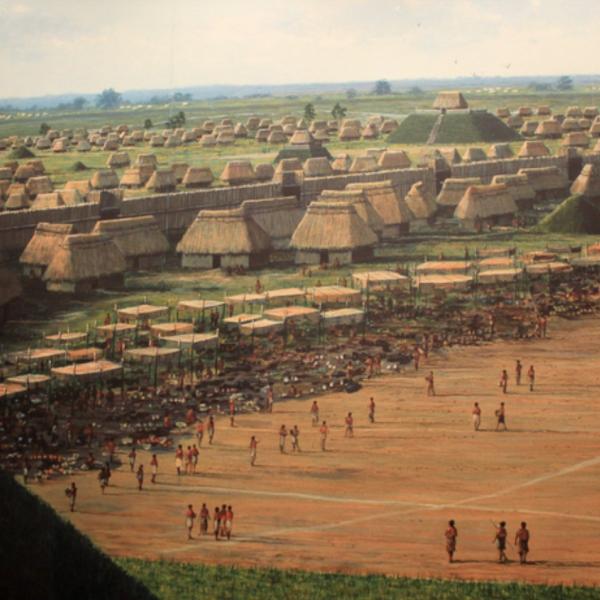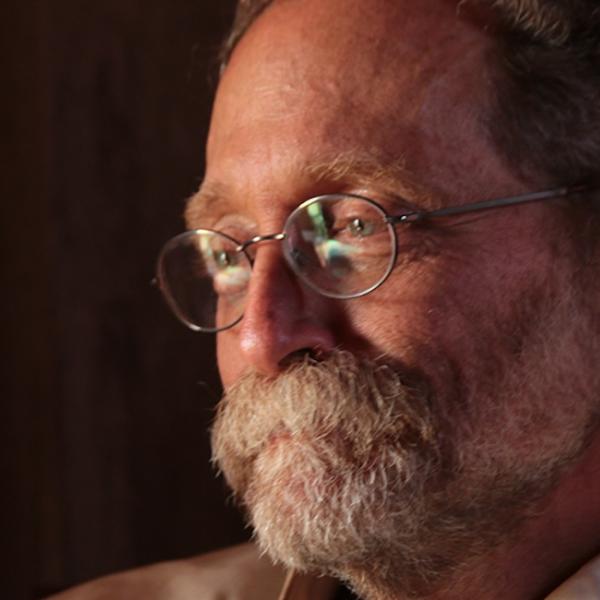Going to class is always more fun with a friend. With so many interesting options to pick from this fall, we rounded up a few of Arts & Sciences’ most exciting offerings for you to add to your schedule. Share this list with your suitemate, your running buddy, or your lab partner — and sign up today!
For the friends who saw Bruce Springsteen live on tour
1984: One Weird Year (History 3848)
This course examines one year as a way to make sense of recent American culture. While the experience of WashU in 1984 will be central to this course, it will also look at points around the country. Students in this course will experience the past as Americans did through the simultaneous overlap of daily life and politics, movies and music, and the books they were assigned to read in school and the very different books they chose for fun.
In addition to tackling the challenge of understanding one year, students will develop important collaborative and communication skills that will benefit them in college and beyond.
Instructor: Peter Kastor
For the friends who won’t stop raving about “Godzilla Minus One”
Topics in Modern Japanese Literature: Japanese Horror Cinema (EALC 365)
This course examines the dilemmas of applying an English-language film genre — in this case, the horror movie — to the cinema of a non-English-speaking culture. Do Western definitions of the horrific and the monstrous work for Japanese cinema? How do notions of genre and the global influence of Hollywood impact the production and reception of national cinemas? Should American remakes of Japanese horror films be called "J-horror"?
By reading texts on genre, horror theory, and Japanese cinema, this course will consider the history and development of the "horror movie" in Japan, taking into account both domestic cultural and filmmaking traditions as well as the larger, transnational world of popular film.
Instructor: Michael Crandol
For the friends who never miss an episode of "This Podcast Will Kill You"
Foundations in Public Health (LPHS 1000)
This course examines public health using an equity and social justice approach that emphasizes the interconnectedness of population and personal health. The course will cover the history and impact of public health, including the importance of health equity, social justice, human rights, and ethics.
Students will get to explore careers in public health and hear from many public health and community health experts from the St. Louis region and beyond.
"Foundations in Public Health will allow students to be immersed in real-world conversations in the area of public health from day one," said Brown School Assistant Professor Diana Parra Perez, who will co-teach the fall course with E.A. Quinn, an associate professor of biological anthropology in Arts & Sciences. "If you're interested in the growing impact of planetary health, of global warming, or social and racial injustices — and how that impacts someone's health — this is a good class for you."
Instructors: Diana Parra Perez and E.A. Quinn
Students interested in learning more about the new Public Health & Society minor are encouraged to register for an informational webinar taking place on Tuesday, July 9 at 7 PM CT.
For the friends who communicate exclusively through memes
"Look Here, Karen": The Politics of Black Digital Resistance to White Femininity (AFAS 5644)
In this course, students will explore the ways in which Black online publics use resistance strategies, such as mimetic imagery and racial humor, to call attention to white femininity and its deployment of the police against African Americans. They will trace the relationship between the police state and white femininity through the historical lens of “innocence” and protection of the U.S. nation, as well as the similarities and differences of Black online publics' responses in relation to past resistance strategies.
What does it mean to be a 'typical' Karen in Internet culture? What are the aesthetic boundaries of Karens? And, what do digital platforms afford to Black users who make Karens visible? While paying attention to race, gender, and class, this course offers students the skills to collect and analyze online data, such as 'Karen' memes, in order to make critical arguments and observations grounded in historical accuracy.
Instructor: Raven Maragh-Lloyd
For the friends who would be better off as running mates
Just Do It! Running for Political Office (Pol Sci 227)
The course will focus on issues and skills related to running for political office at the national level. Students will research issues facing candidates running for office, prepare for and participate in simulated exercises, and learn about the importance of understanding and appealing to divergent points of view.
Students will explore how different roles and strategies contribute to successful campaigns, working in teams of three or four to plan and complete simulation exercises. They will be assigned roles such as political candidate, campaign manager, scheduler, and communications director.
Instructors: Alannah Glickman and David Leipholtz
For the friends with opening night tickets to see “Twisters”
Natural Disasters (EEPS 131)
This course offers an examination of the social, economic, and political consequences of natural disasters using numerous case studies. Students will study locations, particularly in the U.S., where disasters are likely to occur in the future. They will also examine preparations that could minimize damage and casualties.
Instructors: Douglas Wiens and Michael Krawczynski




